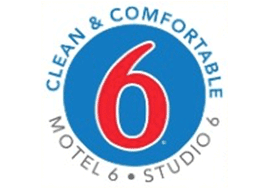When considering a significant appliance investment, like commercial washers, it’s essential to weigh your options meticulously. One decision that businesses face is choosing between hard-mount and soft-mount washers, each with unique benefits and constraints tailored to different environments and needs.
Hard-Mount Washers: Rugged and Reliable
Hard-mount washers are robust machines that require a concrete foundation for installation due to their design. They are bolted directly to the ground, ensuring stability and minimal vibration during operation.
Advantages
- Longevity and Durability: One of the most significant advantages of hard-mount washers is their long service life. These machines are built to withstand intense operations, making them ideal for facilities that process high volumes of laundry daily.
- Fewer Service Problems: Thanks to their simple build and the lack of movable internal parts like springs or shocks, hard-mount models generally face fewer maintenance issues compared to their soft-mount counterparts.
Disadvantages
- Installation Limitations: The need for a concrete foundation can be a drawback for some locations. Installing these heavy-duty washers in buildings without the appropriate structural support, such as those with wooden flooring or above ground levels, can be challenging.
Soft-Mount Washers: Flexible and Efficient
Soft-mount washers offer versatility and can be installed in almost any location. These units come equipped with advanced shock absorbers and springs that allow them to operate efficiently without the need for bolting them down.
Advantages
- High Spin Speeds: With higher G-force capabilities, soft-mount washers can extract more water from laundry, reducing drying time and energy consumption.
- Flexible Installation: The absence of a concrete foundation requirement makes these washers suitable for upper floors or locations with basements, offering significant installation flexibility.
Disadvantages
- Higher Maintenance: The complex internal mechanics, such as springs and shock absorbers, make soft-mount washers more susceptible to wear and tear, potentially leading to increased maintenance needs.
- Cost Considerations: Generally, soft-mount washers are more expensive than hard-mount models, both in initial cost and potential maintenance over time.
Choosing Between Hard-Mount vs Soft-Mount Washers
The decision between hard-mount and soft-mount washers should be driven by specific laundry operation needs and the physical constraints of your facility.
- Assessing Facility Requirements: Consider the layout and structural capabilities of your location. Hard-mount washers require a solid foundation, making them suitable for ground-level installations in industrial environments.
- Understanding Laundry Needs: Evaluate the volume and frequency of your laundry operations. For high-volume environments, the durability and low maintenance of hard-mount washers might be beneficial.
- Installation Flexibility: For buildings with space constraints or multiple flooring levels, soft-mount washers provide the necessary flexibility without significant structural modifications.
Meeting Customer Needs
Ultimately, the choice between these two types of washers depends on balancing the specific requirements of your laundry operations with the physical and budgetary constraints of your facility. Both types of washers offer distinct advantages, and the right choice varies based on individual circumstances and goals.
In Summary
Whether you opt for a hard-mount or a soft-mount washer largely depends on your operational requirements and facility capabilities. Understanding the advantages and disadvantages of each can guide you to the most suitable option for your needs.
If you need further assistance in making an informed choice or want to explore more about these washers, feel free to contact us.











